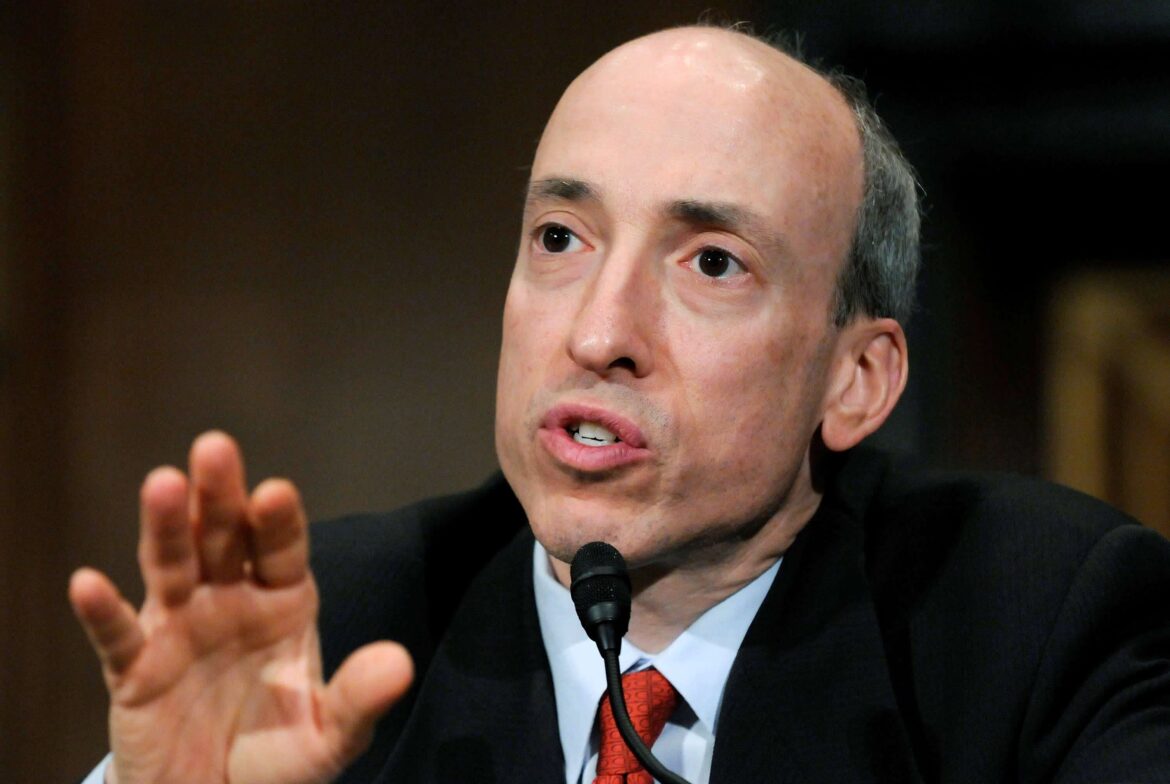 Gary Gensler, the head of the U.S. Securities and Exchange Commission (SEC), has recently made some comments on the legal status of Bitcoin that investors should note.
Gary Gensler, the head of the U.S. Securities and Exchange Commission (SEC), has recently made some comments on the legal status of Bitcoin that investors should note.
Gensler, who has spent much of his career with investment banks and government positions, has commented on the legal status of bitcoin in his role as the SEC chair several times since 2021. The SEC is designed to ensure a safe regulatory environment for investors and to protect consumers from illegal activity, making its positions important to any crypto investor.
On February 27, Gensler made comments in an interview about the state of the wider crypto industry. Specifically, he claimed that “everything but bitcoin” could be considered a security in the world of cryptocurrency, while bitcoin could be considered a commodity due to its stature and resolutely-decentralized nature. The difference between securities and commodities is often determined by the Howey Test, based on a Supreme Court case from 1946, which dictates that the difference between the two is determined by the expectation that investors will profit as well as the status of the party offering a sale. Securities must follow a far more stringent series of restrictions than commodities do, so Gensler’s determination of bitcoin’s status could have major investment implications.
In what Time called a “federal offensive” against the cryptocurrency industry, it noted that Gensler’s SEC has been shutting down a variety of crypto businesses and leading other institutions like the Federal Reserve to decry the risks of crypto and stablecoins. Gensler has personally questioned exchanges’ ability to custody funds, saying that, “Just because a crypto trading platform claims to be a qualified custodian doesn’t mean that it is.” It’s worth noting that these are only his personal views and not in themselves a binding opinion of the federal government’s, but nevertheless, they have been provocative enough for Ripple to call on Gensler to recuse himself in an ongoing legal battle between itself and the SEC.
Bitcoin’s design renders it immune from many criticisms of the broader industry and Gensler has claimed unequivocally that bitcoin should be held to different standards. Any arguments against a particular exchange or altcoin project will not apply to the first-ever cryptocurrency. However, even if bitcoin itself will not be attacked, a frostier environment for the wider world of crypto could have negative effects. An important goal for Bitcoiners is widespread adoption, which could be more difficult if exchanges dealing in bitcoin go under. The same effects could hold for a crackdown on miners and lenders, even if Bitcoin exists worldwide.
As a result, investors need to be cautious about these developments and their potential impacts on the world of cryptocurrency, and also recognize the variety of reasons that betting on bitcoin remains the best and safest option for many. Even with a variety of hostile attacks to the ecosystem as a whole, one can never forget that Bitcoin is the first trailblazer, with years of experience in flourishing under hostile regulators. Any number of cryptocurrency projects could become more dicey propositions if the federal government takes up a firm offense, but Bitcoin has demonstrated time and again that it is capable of coming out of these periods stronger than ever before.



